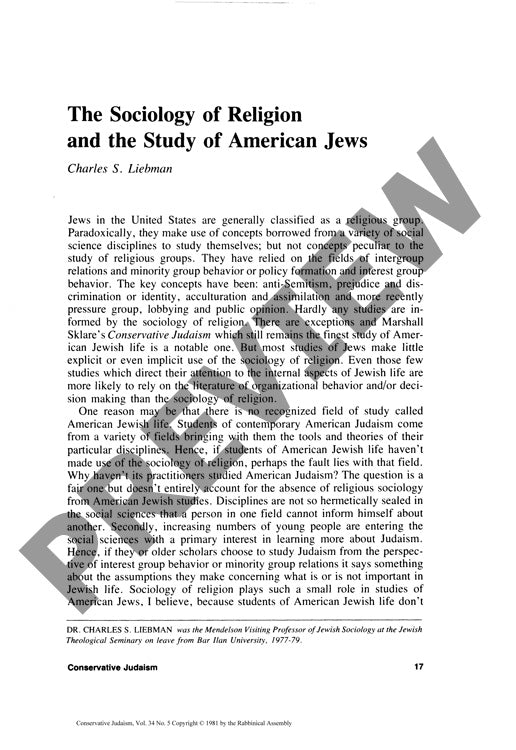The Sociology of Religion and the Study
Couldn't load pickup availability
Religious behavior emerges as the strongest predictor of Jewish commitment in American life, yet scholars have largely overlooked sociology of religion frameworks in studying American Jews. Despite their classification as a religious group, research on American Jewish life has primarily drawn from theories of intergroup relations, minority group behavior, and political science - emphasizing concepts like anti-Semitism, assimilation, and lobbying. Analysis of recent empirical studies reveals that religious engagement correlates powerfully with multiple measures of Jewish connection, including attachment to Israel, philanthropic giving, and resistance to apostasy. Religion functions as a meaning system expressed through symbols, rituals, and myths that connect individuals to ultimate reality and community, as demonstrated through theoretical literature in religious sociology. Both functionalist and substantive approaches offer crucial insights, particularly regarding civil religion and the relationship between ritual observance and social structure. These concepts illuminate distinctive American Jewish symbols like the Lower East Side narrative and kashrut observance, which remain central to understanding Jewish identity and community survival. The findings demonstrate that sociology of religion provides essential analytical tools for comprehending American Judaism, offering insights into how religious meaning systems operate in contemporary Jewish life and potentially informing strategies for Jewish communal continuity in a voluntaristic society.

More Information
-
Physical Description
-
Publication Information
Published
ISBN
-
Publication Credits
Charles Liebman

